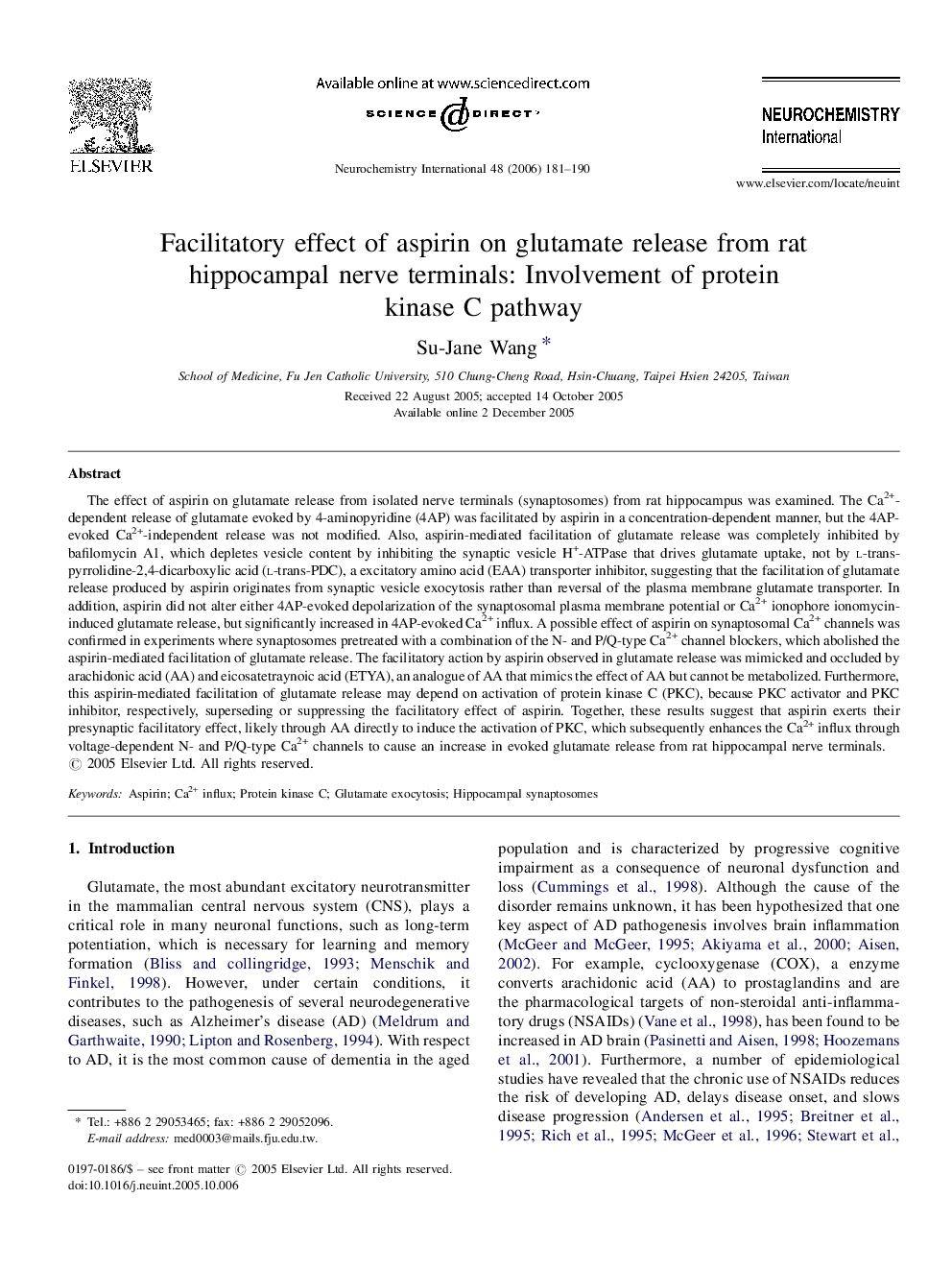| کد مقاله | کد نشریه | سال انتشار | مقاله انگلیسی | نسخه تمام متن |
|---|---|---|---|---|
| 2202105 | 1100060 | 2006 | 10 صفحه PDF | دانلود رایگان |

The effect of aspirin on glutamate release from isolated nerve terminals (synaptosomes) from rat hippocampus was examined. The Ca2+-dependent release of glutamate evoked by 4-aminopyridine (4AP) was facilitated by aspirin in a concentration-dependent manner, but the 4AP-evoked Ca2+-independent release was not modified. Also, aspirin-mediated facilitation of glutamate release was completely inhibited by bafilomycin A1, which depletes vesicle content by inhibiting the synaptic vesicle H+-ATPase that drives glutamate uptake, not by l-trans-pyrrolidine-2,4-dicarboxylic acid (l-trans-PDC), a excitatory amino acid (EAA) transporter inhibitor, suggesting that the facilitation of glutamate release produced by aspirin originates from synaptic vesicle exocytosis rather than reversal of the plasma membrane glutamate transporter. In addition, aspirin did not alter either 4AP-evoked depolarization of the synaptosomal plasma membrane potential or Ca2+ ionophore ionomycin-induced glutamate release, but significantly increased in 4AP-evoked Ca2+ influx. A possible effect of aspirin on synaptosomal Ca2+ channels was confirmed in experiments where synaptosomes pretreated with a combination of the N- and P/Q-type Ca2+ channel blockers, which abolished the aspirin-mediated facilitation of glutamate release. The facilitatory action by aspirin observed in glutamate release was mimicked and occluded by arachidonic acid (AA) and eicosatetraynoic acid (ETYA), an analogue of AA that mimics the effect of AA but cannot be metabolized. Furthermore, this aspirin-mediated facilitation of glutamate release may depend on activation of protein kinase C (PKC), because PKC activator and PKC inhibitor, respectively, superseding or suppressing the facilitatory effect of aspirin. Together, these results suggest that aspirin exerts their presynaptic facilitatory effect, likely through AA directly to induce the activation of PKC, which subsequently enhances the Ca2+ influx through voltage-dependent N- and P/Q-type Ca2+ channels to cause an increase in evoked glutamate release from rat hippocampal nerve terminals.
Journal: Neurochemistry International - Volume 48, Issue 3, February 2006, Pages 181–190